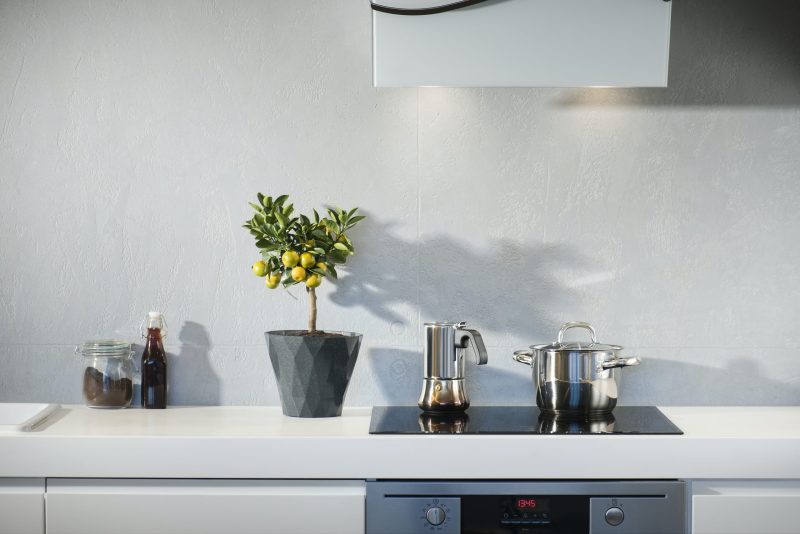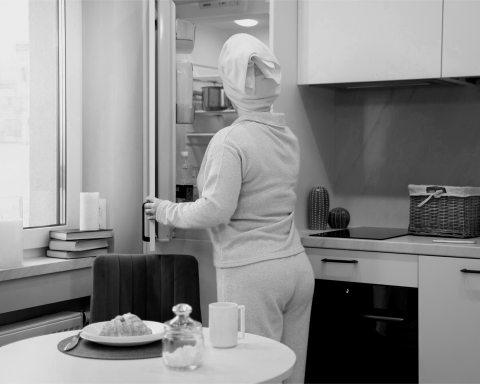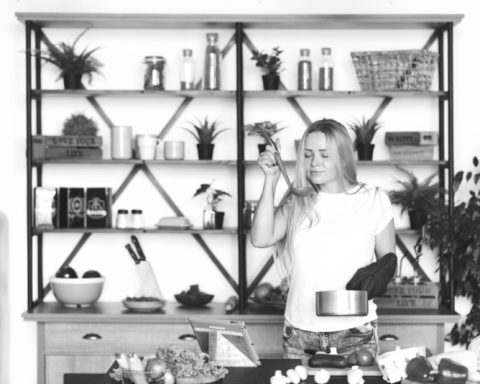The kitchen is the most fundamental part of the house. As the professional organizer, Joshua Becker, would say, the kitchen is “the heart of the home” because it gives room for warmth that exudes from the food and impromptu social gatherings. In a modern setting, it is a place where your social bond with others is cultivated and maintained by spending time together with friends and families to cook, prepare meals, and catch up with each other’s daily life.
Aside from its main function as a place to prepare and serve a large variety of meals, it also acts as a melting pot where tradition and innovation collide. It provides people with a space to experiment with a lot of novel cooking techniques, ingredients, and technology while also enabling them to use old recipes and methods that are inherited from one generation to another. Additionally, some people also creatively use their kitchen space to work in the absence of a home office.
Maintaining a clean and orderly kitchen environment is undeniably important to ensure these activities are performed in a safe and convenient manner. Earlier research shows that a person who organizes their kitchen in consideration of its ergonomics and uses easy-to-clean furniture will make the space have higher effectiveness and mobility for its users. Furthermore, having an effective organization of items in the kitchen can not only help maximize storage but also allows people to easily locate what they need, especially while cooking.
Nevertheless, you may or may not realize that you are organizing your kitchen incorrectly. The Life Management Science Labs (LMSL) team has gathered five common mistakes and how to fix them to help you organize your kitchen space more efficiently and effectively.
Excluding your cooking routines
When it comes to kitchen organization, it’s easy to make the mistake of prioritizing looks over functionality. You might place your blender far in the corner because it does not go well with the overall aesthetic of your kitchen even though you use it to make fresh juice every morning. It is important to acknowledge your cooking style and habit because they influence how the arrangement of the storage and kitchenware is done so that you could cook and prepare food efficiently.
Try walking through your meal preparation process and see if you need to go back and forth just to gather the supplies. How many essential items can you easily reach when you need them? If you find yourself having a hard time reaching for what you need, it may be time to change your game plan and reorganize instead of walking needlessly to the other end of the kitchen just to grab a utensil you use daily.
Buying organizers without decluttering
Even if you have the best of intentions when purchasing organizers, take a moment to declutter first. Buying organizers might help you to arrange the items, but it does not necessarily help you to create an organized system. It is important for you to declutter first to see what needs to stay and what kind of organizer you will need before purchasing one.
Always clear your pantry, fridge, cabinets, and other areas before purchasing kitchen organizers. If you do not know what you have, it is difficult to come up with a realistic answer. Focus on what should definitely stay in the kitchen and its core work zones so you can have more space and maximize the use of each organizer.
Putting rarely used items out on the counter
Leaving out items that you only use occasionally in the kitchen may contribute to disorganization. This includes seasonal items for certain holidays or celebrations, such as Christmas-themed cookie cutters. Another scenario involves items that you bought impulsively, like trying out a specific item because a certain influencer you follow on social media endorses it. If you have not used something in the last month, it generally does not belong on your kitchen counter.
Consider storing seasonal items somewhere else such as labeled containers placed in the storage room or cabinets that you do not need to access on a daily basis. Otherwise, consider whether you need to keep the kitchen appliance at all. If you bought a colorful, fancy pan because it is trendy at the moment but you rarely use it or it takes up too much space, it might be time to resell or give it away. Instead of focusing on the loss of the appliance, consider how much valuable counter space you will gain.
Using food containers that take up too much space
Although unpacking items creates a more coherent aesthetic and reduces the illusion of clutter, having jars and food storage containers might not be saving you any room. Since food containers can come in different sizes and shapes, they might eat up more space than they save. If you do not measure them properly, there is a higher chance that they won’t stack well with each other in the cupboard.
Instead of choosing containers solely for their aesthetic value, consider whether they will truly serve a utilitarian purpose in your kitchen. Measuring the availability of space is important so that you can map out which containers go to where and what will be inside those containers. That way, they won’t end up overcrowding the kitchen surface.
Underutilizing vertical space
Not having an adequate kitchen area is one problem you might hear frequently or even experience yourself. This leads to the belief that the only solution to insufficient kitchen space is a bigger room. However, this is not always the case. There’s a high chance you are not making the most of your upper wall cabinet storage because you have no idea how to use them since they are difficult to access.
Wall cabinets are the ideal position for serving platters and fine dishware you only use once or twice a year. Alternatively, this area might be used to store extra cleaning products. Whatever you do, don’t put everyday dishes in the cupboard on the very top shelf. The idea is to improve the existing space simply by reorganizing where things belong and examining what you need and utilizing against what is merely taking up valuable space.
In conclusion
Acknowledging what you truly need is the key to creating a well-organized kitchen. Once you are aware of your lifestyle and the potential your kitchen has, avoiding incorrect organizing practices will become easier.
LMSL’s Home Organization Science Labs features science-based tips and tricks, courses, certifications, and other content on kitchen organization using the research by the Institute for Life Management Science. If you are planning on decluttering and don’t know where to start, visit the Home Organization Science Labs today. Photo by Marcin Galusz on Unsplash
Photo by Marcin Galusz on Unsplash



